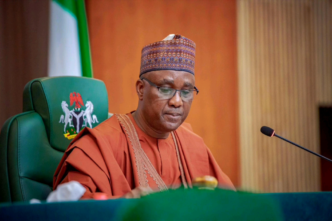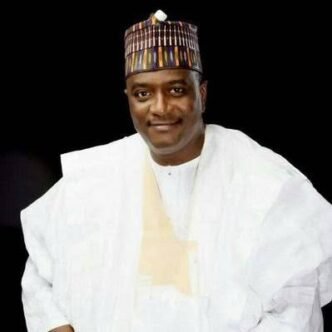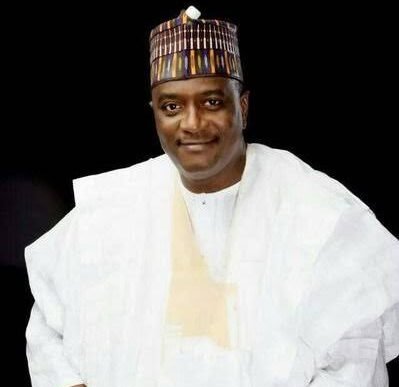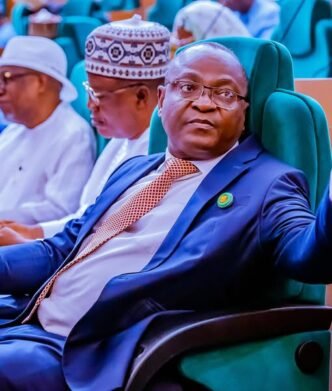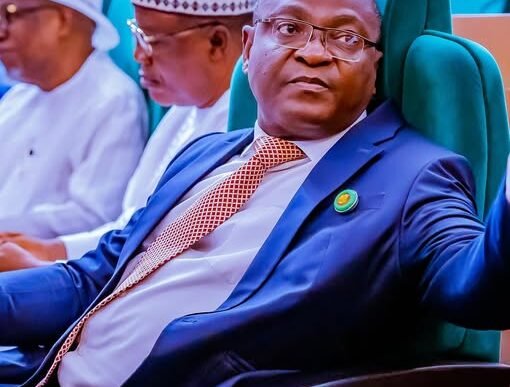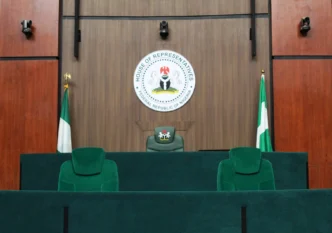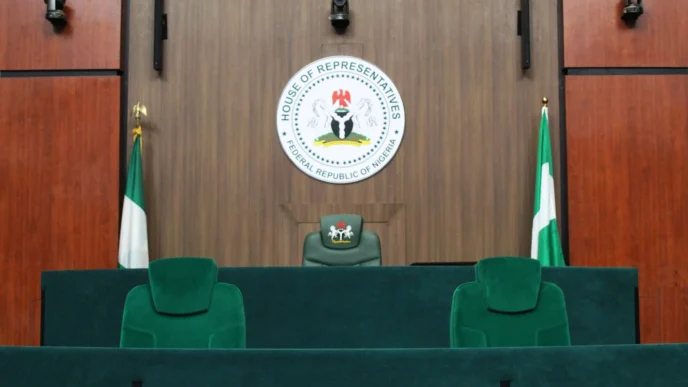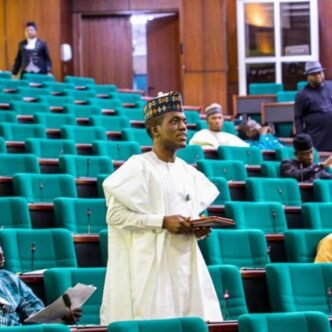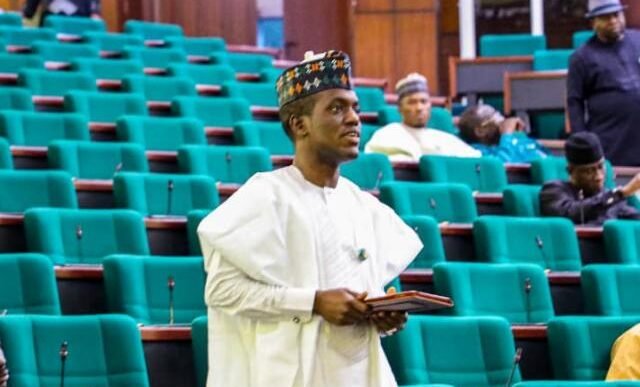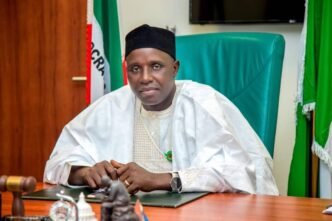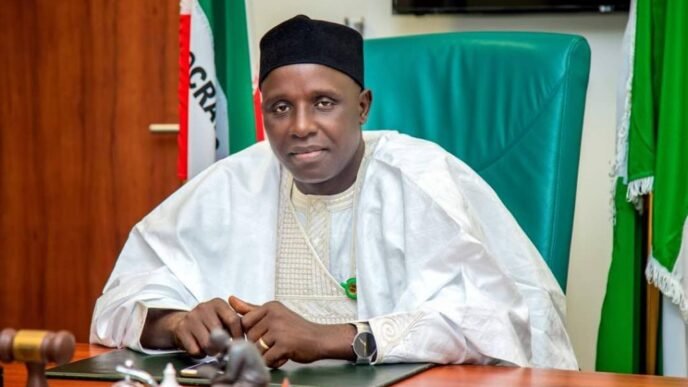HB. 1217 – A BILL FOR AN ACT TO ALTER THE CONSTITUTION OF THE FEDERAL REPUBLIC OF NIGERIA 1999 CAP C23 LAWS OF THE FEDERATION OF NIGERIA 2004, TO ESTABLISH AND EMPOWER THE POLITICAL PARTIES REGISTRATION AND REGULATORY COMMISSION TO REGISTER, REGULATE, AND MONITOR THE ORGANIZATION AND OPERATION OF POLITICAL PARTIES; AND FOR RELATED MATTERS. Co-sponsored by Speaker Tajudeen Abbas and Hon. Marcus Onobun. Bill Progression: Committee Stage

This Bill seeks to alter sections 40, 81, 84, 153, 222, 225, 226, 228 and the 3rd Schedule of the Constitution to establish the Political Parties Registration and Regulatory Commission (PPRRC) and empower it to register, regulate and monitor political parties in Nigeria. Hence this reduces the burden on INEC and also allows the PPRRC to focus squarely on regulating the registration, dissolution and regulation of the operation, finances, internal democracy, party primaries and general conduct of Political Parties in Nigeria so as to ensure order, transparency and a level playing field.
In a significant move aimed at overhauling the political landscape in Nigeria, a proposed bill known as HB. 1217 seeks to amend the 1999 Constitution to establish a Political Parties Registration and Regulatory Commission. This initiative is designed to create a more structured and accountable framework for political parties operating within the country, an essential step for strengthening democracy in Nigeria.
The proposed constitutional amendment highlights the necessity for a regulatory body that can oversee the myriad political parties in Nigeria. Currently, the certification and regulation of political parties fall under various government agencies, leading to inconsistencies and lapses in governance. HB. 1217 aims to rectify this by providing a dedicated commission that would streamline these processes.
The creation of the Political Parties Registration and Regulatory Commission (PPRRC) is at the core of this legislation. If passed, this new body would assume the pivotal role of registering political parties, which is a crucial component in ensuring that only credible and legitimate organizations participate in the democratic process. The proposed commission would implement standardized criteria that parties must meet for registration, promoting a higher level of accountability among political contenders.
Beyond merely registering political parties, the PPRRC would also be endowed with the authority to regulate the activities of these entities. This includes establishing guidelines for party conduct, transparency in financial dealings, and adherence to democratic principles. By doing so, the commission would serve as a guardian of democratic integrity in the nation, working to prevent malpractice and the misuse of power by political parties. Such regulatory oversight is essential, especially in a context where political manipulation and corruption can significantly undermine public trust in democratic institutions.
Monitoring the operations of registered political parties is another critical function that the proposed commission would fulfill. The PPRRC would conduct regular assessments to ensure that parties comply with established regulations and maintain ethical standards in their operations. This monitoring aspect is particularly relevant given the challenges posed by unethical practices in Nigeria’s political environment, including vote buying and electoral fraud. By keeping a watchful eye on party activities, the PPRRC could enhance the credibility of electoral processes and foster greater public confidence in democracy.
The bill also addresses related matters concerning political parties, although specific details have not been disclosed. These provisions could range from establishing party funding mechanisms to rules governing internal party democracy, all of which are fundamental to ensuring a fair political playing field. The holistic approach taken by HB. 1217 suggests that its authors recognize the intertwined nature of various aspects of party politics and governance in Nigeria.
Proponents of HB. 1217 argue that establishing the PPRRC would significantly bolster Nigeria’s democratic system. They contend that transparency and accountability are cornerstones of any functional democracy, and a regulated environment for political parties is vital in achieving this ideal. By instituting a structured oversight mechanism, the bill could lead to more informed electoral choices for the Nigerian populace and a reduction in the political apathy that often prevails in the face of perceived corruption and ineffectiveness.
However, not all reactions to the proposed bill have been positive. Some stakeholders have expressed concerns about the potential challenges involved in establishing and funding a new regulatory body. Questions arise about who will oversee the commission’s operations, ensuring that it functions independently without political interference. Additionally, the financial implications of setting up the PPRRC, including how it will be funded and sustained, remain a significant point of discussion. Establishing a new entity in an already complex political landscape introduces various logistical hurdles, and critics are wary of how effectively the commission may operate if these concerns are not adequately addressed.
Despite the apprehensions, many view HB. 1217 as a necessary and progressive step towards a more robust and well-regulated political system. The historical context of Nigeria’s political evolution underlines the urgency of reform. Political instability, corruption, and a lack of accountability have plagued the system for decades, and there is a growing recognition that fundamental change is needed to address these issues. By instituting a regulatory framework, Nigeria could pave the way for healthier political discourse and facilitate a more participatory democratic process.
In conclusion, the proposed HB. 1217 is a vital step towards restructuring the political framework in Nigeria, emphasizing the need for a dedicated body to regulate, monitor, and register political parties. While challenges remain in its implementation, the potential benefits of increased transparency, accountability, and democratic integrity present compelling arguments for the bill’s support. Navigating the complexities of political reform is always fraught with difficulties, but with concerted effort and commitment, Nigeria could emerge from this undertaking with a political system that genuinely reflects the will of its people. The conversation around HB. 1217 is just beginning, and its implications could shape the future of Nigeria’s democracy for years to come.
